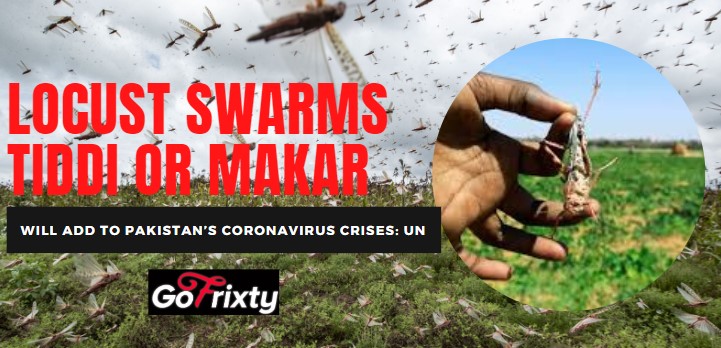Locust Swarms in Pakistan (in Urdu called Tiddi and in Sindhi called Makar) have returned once again with full force. Locust swarms have been found in millions near Indus river in south Pakistan (Sindh region). These insects now being referred to as the coronavirus of agriculture.
The major agricultural parts of the Middle East, East Africa, and South Asia have been facing their worst locust swarms for 25 years. These insects were found in millions attacking to the field corps in south Punjab and Sindh region at the end of 2019. But with the decrease in temperature, this plague disappeared.
Now, as the temperature increase, this agricultural coronavirus has once again reappeared and is found eating major crops including strawberries and wheat. The United Nations Agriculture Agency has warned Pakistan Government for a new wave of ravening locust swarms threaten to devastate crops in parts of Pakistan.
Pakistan is currently fighting against major issues including COVID-19 Coronavirus Pandemic along with starvation, hunger, unemployment, post-lockdown implications, corruption mafia, and Indian terrorism. Now, this locust swarms have added into the list. Which made things much challenging for the country.




